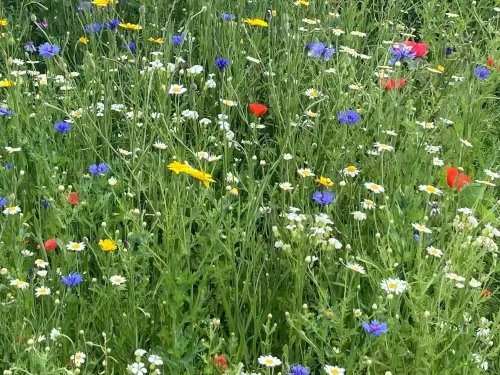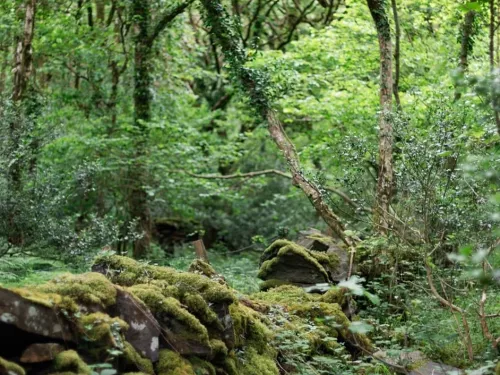My mother is a powerful force who raised my brother and I as a single mother. She has always worked incredibly hard to make sure that we never went without. I can remember coming home from school crying because someone told me they didn’t want to sit next to me as I had “brown skin”. My mother was outraged that this had happened and took me to the school, getting my teacher to explain why this was wrong. At the time, I was humiliated and embarrassed to be perceived as making a fuss or being difficult, but on reflection I am very glad that she did. This taught me that it’s okay to take up space as someone with black heritage, and that it is necessary to call out inappropriate comments and behaviour as and when it occurs.
I believe Black History Month is incredibly beneficial to black communities as an important time to reflect on and acknowledge the horrific parts of our history, and to celebrate being black and how powerful that can be. This month (and every month), I am so thankful for the many strong black women in history and in my life who have worked so hard to give me the opportunities I have and allowed me to be the person that I am today.
How does Black History Month affect your current work?
Conservation has the reputation of being a white, middle-class industry, and with good reason - It is the 2nd least diverse industry in the UK. Black History Month is an opportunity to reflect on projects that are working well to hear black voices, but also acknowledge where we are as an organisation, and what we need to do to improve. Most conservation organisations, including Kent Wildlife Trust, still have a way to go in becoming a true representation of the overall population. I have been fortunate to have been given the opportunity to receive mentoring from Charlie at London Wildlife Trust, (Read Charlie’s blog here), alongside groups like The Raven Network, which have provided me the opportunity to share my experiences and learn from others about working in this industry as someone from a global majority background.
Projects like Nextdoor Nature, the project that I work on, are playing a huge role in reaching new communities and empowering them to take action for nature. To enable us to do this, we have used an approach called ‘Community Organising’, which is a new approach for Kent Wildlife Trust. It involves bringing people together who are experiencing similar issues or injustices and empowering them to act against these and create a meaningful difference. This method has allowed us to meet amazing people from black communities and hear their voices and about their lived experience and how this has impacted their relationship with nature.
What is your personal experience with nature?
My connection to nature has grown over time. Nature became an important part of my life in later childhood, particularly as I was a big animal lover. I loved walking in the park with a bird watching guidebook and some free binoculars. Despite this, conservation was never a career that I had considered. I didn’t see representation within the industry, and it didn’t feel like it was a career for people from my background. However, moving to Kent and visiting places that showcase British wildlife such as The Wildwood Trust inspired me to learn more about the incredible nature around me. It excited me living under 10 minutes away from the pioneering Wilder Blean project site, and I really wanted to become involved in some way. I became passionate about working in nature, and decided to volunteer as a Wilder Blean Greeter, engaging with visitors about the project and answering their questions. It was through this volunteering that I was encouraged to apply for my position on the Nextdoor Nature project.
In addition to my love of British wildlife, I have always been conscious and proud that the Seychelles is home to a such amazing wildlife as giant tortoises, whale sharks, turtles, rare birds and coral reefs. Being an average of just two metres above sea level, rising sea levels mean my home country may not even exist in the somewhat near future. Tuvalu is in a similar situation to the Seychelles, and in 2022 a Tuvalu Government Minister gave a speech whilst waist deep in the ocean as part of the COP26 climate conference, demonstrating what the future may look like for such ocean archipelagos unless we take real action for the climate.
What could Kent Wildlife Trust do to improve the accessibility of black communities to nature, and to improve the inclusivity of the Trust to those same groups?
I don’t believe there is one simple answer to improving inclusivity, and I think we need to visit all aspects of the organisation. It is incredibly important to be honest about where we are, and where we would like to be – and absolutely not skip steps along the way. Here are some ideas of things that the Trust could do to improve representation within its own workforce:
- Providing more support for those from global majority backgrounds, including signposting to Equality, Diversity and Inclusivity (EDI) groups and networks and provide opportunities for staff mentoring from others from similar backgrounds.
- Adopting the use of an external EDI consultant to take forward staff ideas, and to hold the organisation accountable for implementing them. It is much easier to talk about your lived experience with somebody who has had similar experiences to you, and who has knowledge and understanding of the Equality Act in an employment setting.
- Providing an avenue for anonymous whistleblowing so staff feel confident about raising issues of discrimination experienced in the workplace.
- Using inclusive language in the workplace. Language we use around EDI is constantly changing and evolving, and the organisation needs to ensure that it is always up to date. Training can often be geared towards how to avoid discrimination, and not what to do in the event of it taking place either to yourself or to your colleagues.
- Recruitment reforms including anonymous shortlisting and guaranteed interview schemes may encourage more applicants from global majority backgrounds, as would advertising job roles on platforms specifically for those from a diverse range of backgrounds.
Projects like Nextdoor Nature are a great start towards encouraging involvement in nature from those from a variety of backgrounds, and this type of approach should be replicated across Kent to have the greatest effect possible.




